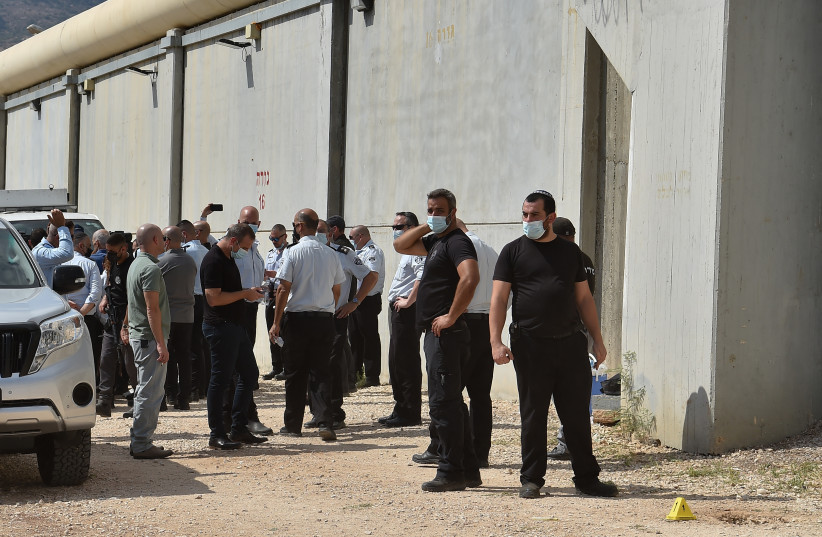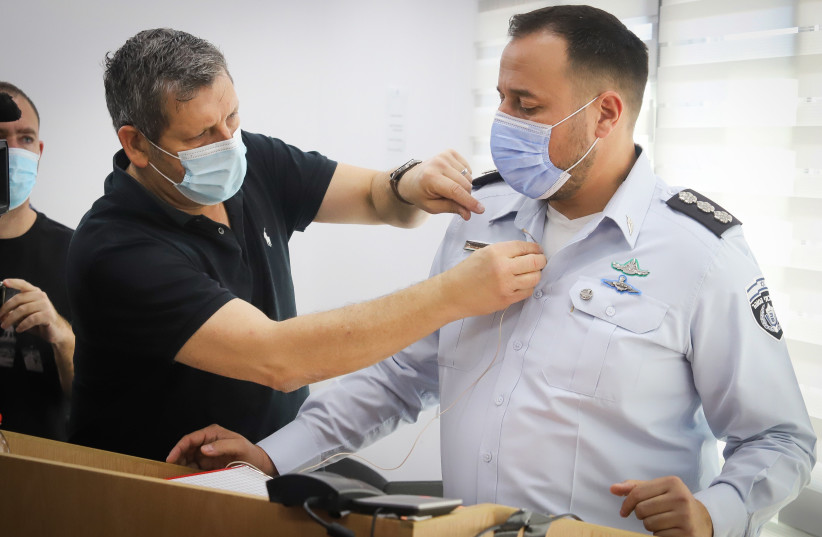The secure hotline for female prison guards will be launched two weeks ahead of its planned opening in light of the developing atrocities in what has become known as the Gilboa Prison pimping affair, Prime Minister Yair Lapid announced on Tuesday at his first Israel Prison Service (IPS) tour.
Yesterday, Lapid decried the pimping affair, in his first comments on the matter as prime minister, along with the general wave of public outcry on the pimping of female security guards by their commanders to high-security terrorist prisoners in exchange for information.
What is the pimping affair?
What became known as the pimping affair is a series of sexual assaults orchestrated and carried out against female soldiers and prison officers in Israeli prisons from 2014-2017.
The case was first publicized in 2018 by Liran Levi, Ynet's criminal journalist and the one who reported the pimping affair back in 2017 with Channel 14, but was then closed in October 2019 due to a "lack of evidence." It was reopened last November after Prison Warden Freddy Ben Shitreet mentioned it in his testimony into the escape of six Palestinian prisoners.

The case dealt with testimonies of female prison guards accusing then Prison Intelligence Officer Rani Basha of allowing Fatah terrorist and high-security prisoner Muhammad Atallah to have access to female prison guards in return for providing him with intelligence information.
Last week, a new victim came forward, alleging she was raped by a different prisoner.
What did Lapid's visit consist of?

Lapid held a personal meeting with the upper echelon of the staff, as well as 25 women who are prison guards throughout the country.
Joining him at the Ofer Prison in the West Bank were Public Security Minister Omer Bar Lev, Bar Lev's Deputy Yoav Sgalovich, Knesset Interior Security Committee Chairman Merav Ben Ari (Yesh Atid) and IPS Commissioner Katy Perry.
"The way to analyze and test a security organization is to ask yourself what would happen if it didn't exist: If there was no traffic police, you'd have more accidents; if there was no General Staff Reconnaissance Unit, there would be way less special operations.
"If there was no IPS, it would not be possible to live in the State of Israel, because it would be flooded with crime, terror attacks and terrorists. No one would be safe inside their house or outside of it. You are the last line of defense before chaos," said Lapid.
"Strong organizations — like you — know how to evaluate themselves with honesty even if it reveals harsh truths," he added.
How do we move forward?
For some, this can only mean one thing — a commission of inquiry.
Levi wrote in an op-ed on Monday that the only answer to the terrifying details that continue to arise in this case, the only way to truly get justice, is through a Commission of Inquiry.
It's been nearly 40 years since an Israeli prime minister visited the IPS — the last one was Shimon Peres in 1985.
Lapid went on to say that the "State of Israel will not stand idly by while there is a suspicion that a drafted person officer was raped or assaulted by terrorists. Yet we will keep this organization as a whole; the life of every Israeli citizen is dependent on it."
Bar Lev and Perry made similar comments strengthening the IPS and testifying to its importance as a pillar of the State.
Shira Silkoff contributed to this report.
